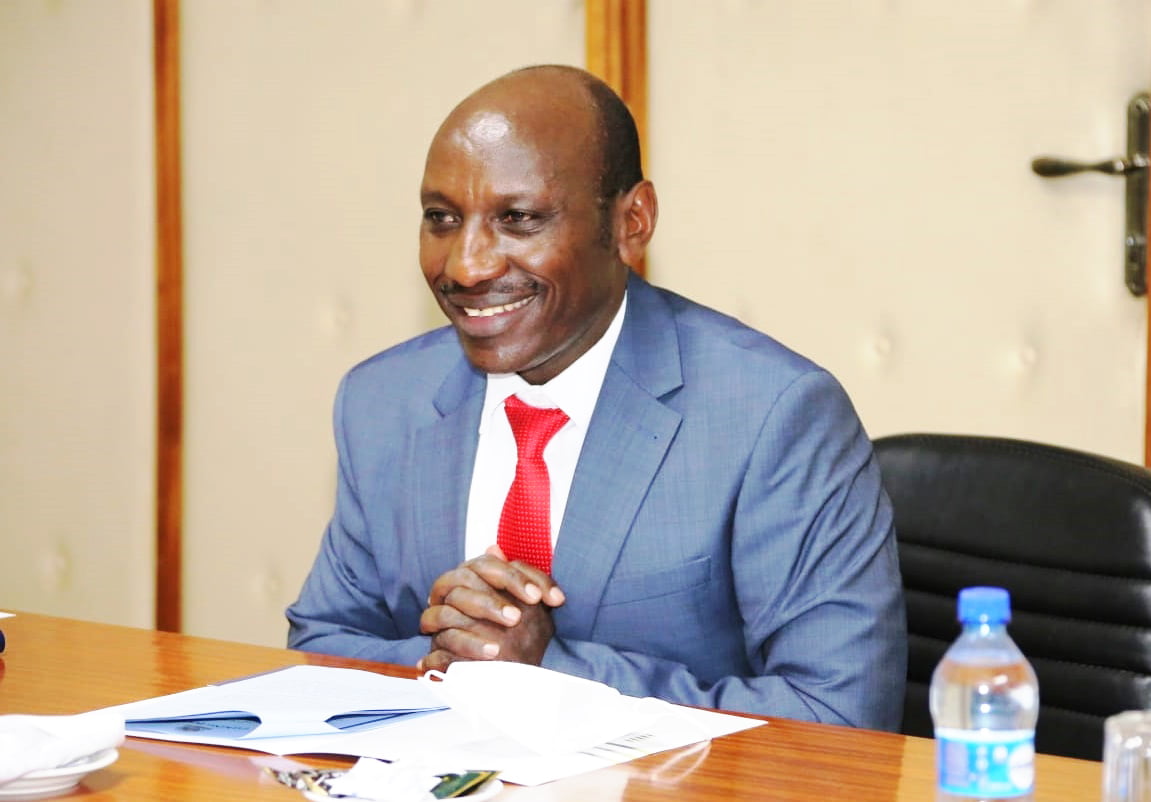Kenya’s teachers have travelled an extraordinary path from colonial-era fragmentation to today’s
constitutional protections. It’s time for the teaching fraternity to pause, reflect on this remarkable progress,
and demand more responsible leadership from their union representatives.
During the colonial period, teachers endured profound inequalities. By 1910, thirty-five mission schools
operated with different salary scales, leaving teachers vulnerable to arbitrary decisions and discriminatory
practices. African teachers received significantly lower compensation than their European counterparts, with
no job security, standardized terms, or collective bargaining rights.
Compare that reality to today: teachers now enjoy structured salary scales under one employer and regulator,
with clear progression pathways, comprehensive housing and medical allowances, professional development
opportunities, and constitutional protection under Article 237.
The TSC Transformation
The establishment of the Teachers Service Commission marked a watershed moment, evolving from a semi-
autonomous body under the Ministry of Education to an independent constitutional commission in 2010.
Under Article 237 of the Constitution, the TSC is mandated to register trained teachers, recruit and employ
registered teachers, assign teachers employed by the Commission, promote and transfer teachers, exercise
disciplinary control over teachers, terminate employment of teachers, and review terms and conditions of service of teachers.
The successive Collective Bargaining Agreements have demonstrated the power of structured negotiations.
The current CBA framework, informed by research initiatives including the Sarah Serem CBA research, has
systematically aligned teachers’ salaries, allowances, and grades to reflect the net-worth of work performed.
ALSO READ:
KNUT officials reject SHA medical cover, demand retention of MINET Scheme
Teachers now benefit from enhanced basic salary structures, improved housing and medical allowances, career
progression opportunities, and professional development support. The CBAs have established predictable
advancement pathways, comprehensive benefit packages, and recognition systems that acknowledge teaching
as a professional career worthy of competitive compensation.
Economic realities demand responsible leadership
However, Kenya’s economic constraints require honest acknowledgement. In 2020, the World Bank reported
that Kenya’s public sector wage bill accounted for 7.6% of GDP, a figure lower than that of many comparable
countries such as Ghana, Uganda, and Rwanda. All public servants – teachers, healthcare workers, security
personnel, and civil servants – receive salaries from the same national treasury.
Current government policy aims to achieve the Public Financial Management threshold of 35 per cent wage
bill to revenue ratio, indicating the challenging balance between fair compensation and fiscal sustainability.
Current economic challenges include debt service obligations, infrastructure development needs, and post-
pandemic recovery efforts that limit resources available for salary increases across all sectors.
The teaching profession has grown substantially, with increasing student enrollment requiring more teachers.
This expansion, while positive for education access, means that even modest salary increases significantly
impact the national wage bill.
A call for proactive union leadership
Teachers deserve union leaders who understand these economic realities while still advocating effectively for
professional welfare. The future of teacher welfare lies not in confrontational politics, but in sophisticated
leadership that combines professional advocacy with strategic engagement.
Central to this transformation is the recognition that the Teachers Service Commission, as an independent
constitutional body, must be acknowledged and given the space to serve teachers within the dynamics of
economic reality. The TSC operates under a constitutional mandate to advance teacher welfare while
balancing fiscal constraints and national development priorities. Union leaders must work collaboratively with
this institution rather than undermining its efforts through adversarial approaches.
ALSO READ:
The new discipline: How schools navigate punishment, parents, and law
The era of long protracted boardroom demands and theatrical media briefings must give way to sobriety,
genuinity, patriotism, and good citizenship. Teachers deserve representatives who understand that meaningful
progress comes through respectful dialogue, evidence-based proposals, and recognition of the TSC’s
constitutional role in teacher management. Such leaders appreciate that public confrontations often hinder
rather than advance teacher welfare by creating unnecessary tensions and damaging working relationships.
Effective union leadership in today’s Kenya requires a fundamental shift toward proactive rather than reactive
approaches. Teachers should seek leaders who prioritize building bridges over burning them, who engage in
evidence-based advocacy that considers both teacher needs and national economic capacity. Such leaders
understand that sustainable improvements come through persistent, intelligent negotiation rather than dramatic
gestures designed for temporary visibility.
The teaching profession needs representatives who can navigate complex economic realities while
maintaining an unwavering commitment to teacher welfare. This means leaders who invest time in
understanding national fiscal policies, who can articulate teacher needs within broader economic frameworks,
and who build lasting partnerships with TSC and other government agencies based on mutual respect and
shared objectives.
Modern union leadership should demonstrate the analytical skills and professional excellence that teachers
bring to their classrooms. Leaders must communicate honestly with members about what is achievable within specific timeframes, celebrate incremental progress while working toward larger goals, and develop
comprehensive strategies that link teacher welfare to educational quality and national development.
The most effective union leaders are those who balance fierce advocacy for teacher rights with patriotic
citizenship, understanding that Kenya’s economic growth ultimately enables improved teacher compensation.
They build coalitions across sectors, support policies that strengthen national economic capacity, and promote
teaching as a noble profession that deserves both competitive compensation and societal respect. Such leaders
recognize that teacher welfare and national prosperity are not competing interests but complementary goals
that can be advanced together through intelligent, strategic leadership that respects the TSC’s constitutional
mandate and operational realities.
ALSO READ:
The Patriotic Approach
True union leadership in contemporary Kenya requires understanding that teacher welfare exists within
broader national development goals. Union officials must look beyond self-preservation and consider the
country’s monetary and fiscal constraints.
This doesn’t mean accepting inadequate compensation, but rather advocating intelligently for sustainable
improvements that can be maintained over time. Responsible union leadership links teacher welfare to
professional excellence, supports national economic development, and maintains the dignity of the teaching
profession.
Government and TSC Must Continue Partnership
The constitutional independence of TSC has created unprecedented opportunities for professional teacher
management. Government and TSC must maintain their commitment to regular consultations with union
representatives, transparent communication about fiscal possibilities, and continued investment in teacher
professional development.
Predictable salary adjustments linked to economic performance, comprehensive professional development
opportunities, and recognition of teaching excellence will serve both teacher interests and national
development goals.
Kenya’s teaching community stands at a crossroads. The journey from colonial fragmentation to constitutional
protection demonstrates that remarkable progress is possible through strategic, persistent effort. The challenge
now is continuing this trajectory through leadership that balances professional advocacy with national
responsibility.
ALSO READ:
Legacy of faith and learning: Kitale Diocese bids farewell to long-serving education secretary
Teachers and union officials must appreciate the TSC and government efforts in addressing terms of service
within economic constraints. Addressing all teacher concerns simultaneously during economic hardship isn’t
feasible, requiring union leaders to demonstrate patriotism and understanding of the country’s fiscal limitations.
The teaching profession serves national development. Teachers model citizenship values to students and
communities. Union leadership should reflect these same principles – combining unwavering advocacy for
professional welfare with responsible engagement that considers Kenya’s broader economic realities.
The transformation from missionary-controlled employment to constitutional protection represents one of
Kenya’s most significant professional advancement stories. Teachers have achieved remarkable gains through
persistent, organized advocacy. Now, the teaching community must demand union leadership worthy of these achievements – leaders who
build upon constitutional victories through responsible, strategic engagement rather than theatrical
confrontations that serve political ambitions more than professional welfare. Kenya’s education system and the nation’s development trajectory depend on this evolution in teacher leadership.
The choice lies with teachers themselves: continue supporting leaders who prioritize political
theatre, or demand representatives who embody the analytical thinking, civic responsibility, and professional
excellence that define great teaching.
By Ibrahim Hish Adan
The writer advocates for responsible teacher union leadership that balances professional advocacy with
patriotic citizenship, building upon the remarkable progress from colonial inequality to constitutional
protection.
You can also follow our social media pages on Twitter: Education News KE and Facebook: Education News Newspaper for timely updates.
>>> Click here to stay up-to-date with trending regional stories
>>> Click here to read more informed opinions on the country’s education landscape






